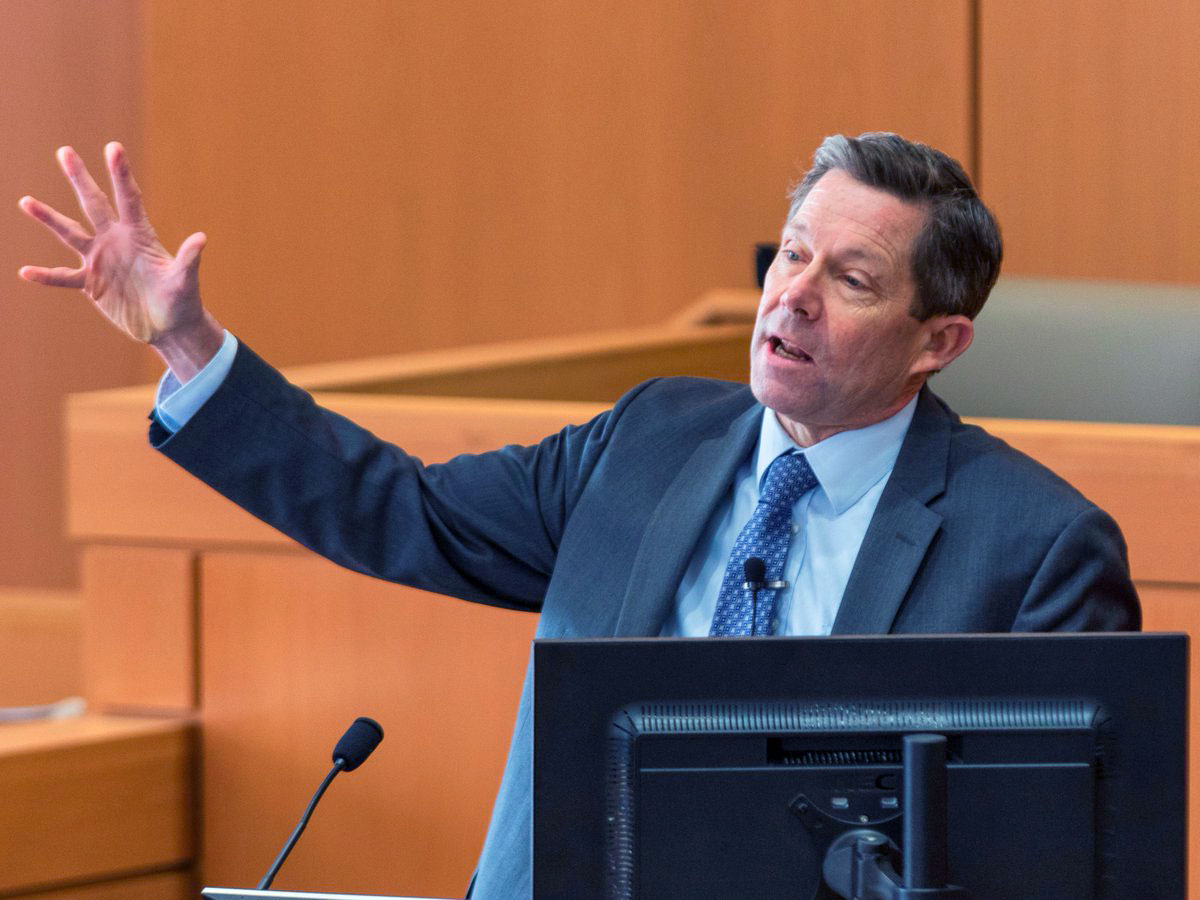Federal judge urges lawyers, law students to give state courts their due
Here is something you will never see in a basketball game, but which happens all the time in the American legal system, the Hon. Jeffrey S. Sutton told attendees at the annual Regula Lecture at the University of Akron School of Law on March 5.

“No basketball player who gets two free throws only takes one, so why are so many attorneys refusing to take a second shot awarded under the relevant state constitution,” asked Sutton. “What client doesn’t want a second shot?”
Sutton, a former Ohio Solicitor General who has served on the Sixth Circuit U.S. Court of Appeals since 2003, believes that state constitutions should be the avenue of first choice for legal advocacy and interpretation, rather than the federal constitution. He lays out this thesis in his new book, 51 Imperfect Solutions: States and the Making of American Constitutional Law (Oxford University Press).
Underappreciated
When we think of constitutional law, we invariably think of the U.S. Supreme Court and the federal court system, said Sutton. Yet much of our law is not made at the federal level. About one million federal cases are filed every year, including bankruptcies. By comparison, 84 million cases are filed in our 50 state courts every year.
“An underappreciation of state constitutional law has hurt state and federal law and the proper balance between state and federal courts,” he said. “One problem with this trajectory is that I think it will end in tears.
“Why, the American people will ask, does one political body have the authority to check another political branch? The reason [the Supreme Court’s power of judicial review] has worked all these years is that they were not perceived as a political body but as merely interpreting what the Constitution means or what statutes mean. Right now, the greatest anxiety is that no one is checking the courts,” he said.
“How do we get out of this? It’s not that easy. Obviously, a détente is what you want—what I want. You want the Supreme Court exercising less Constitutional authority, nationalizing fewer rights—whether right or left—and requiring more of those things to be debated and decided elsewhere.
That is exactly what gets me to the state courts and state constitutions. It is the only way we are going to save the Supreme Court.”
Advice to young lawyers
He advised the law students and young lawyers in the audience to pay more attention to the state courts and state constitutions.
“I can guarantee that if you pay attention to the state courts it will be one of the most promising ways to make a difference in whatever state you want to practice in. In part because so few people are doing it. In part because [state constitutional law] is so underdeveloped. And in part because it is often the best way to deal with new social issues.”
Americans regard the Supreme Court as the ultimate protector of individual rights in our country, he said. “But there have been times in our history when the Supreme Court has not been the great rights protector.”
One chapter of his book tells the story of the 1927 case of Buck v. Bell, in which the Supreme Court upheld a Virginia statute authorizing compulsory eugenic sterilization as constitutional in an 8-1 vote. As a direct result, many more states passed eugenic laws mandating sterilization of “feeble-minded” men and women.
Eight lower courts had previously ruled on eugenics statutes, including six state courts, said Sutton. Five of the six state courts got this right, as we view the law today. They struck down such sterilization laws, which over time Americans have come to find morally repugnant.
It just goes to show, said Sutton, “If you put all your ‘rights’ eggs in one basket, you will eventually be disappointed.”
The Regula Lecture series is named after Ralph Regula, a U.S. Representative from Canton, Ohio, who was instrumental in the bipartisan effort to establish the law school’s Center for Constitutional Law. It has been a featured event over the last 11 years.
